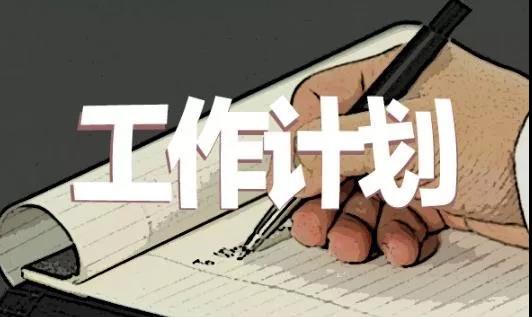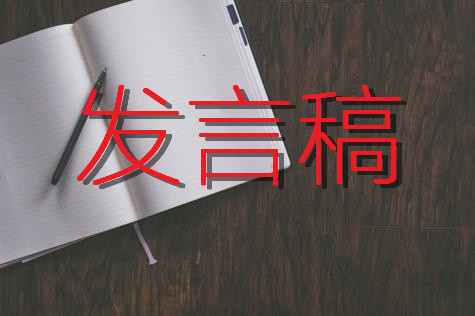下面是小编为大家整理的2022年中考英语易考易错易混知识点大全3篇,供大家参考。

天道酬勤,曾经的每一分付出,必将收到百倍回报。不管揭晓的答案是什么,只要努力过、奋斗过,就不会后悔。下面是的小编为您带来的中考英语易考易错易混知识点大全优秀3篇,希望能够帮助到大家。
中考英语语法易错易混知识点 篇一
1.He hardly had anything to eat, ________ he?A. didn’t B. hadn’t C. had D. did
答案:D (选择A的同学要注意hardly表示否定;选择B和C的同学要注意,反意疑问句要用助动词。)
2.He says that he won’t be free until tomorrow.他说他到明天才会有空。
解析: 在这个复合句中, that引导的从句做says的宾语,被称为宾语从句。until用在否定句中,构成“not.。.until.。.” 结构,意为“直到……才……”,谓语动词用非延续性动词;until用在肯定句中,意为“直到……”,主句的谓语动词要用延续性动词。例如:They didn’t leave until they finished their work. 他们完成了工作才回家。
We waited until he came. 我们一直等到他来。
3、 课本:There’s something wrong with my computer. It doesn’t work. 我的计算机出了故障,它无法工作了。
真题再现:I have to speak to my grandpa loudly because there’s _____ with his ears.
A. wrong something B. something wrong C. anything wrong D. nothing wrong
要点点拨:形容词修饰something, nothing, anything, everything等不定代词时要后置,故排除A。答案:B
4、课本原句:All the computers must be shut down when you leave. 离开时你必须把所有的计算机关掉。
真题:The whole company _____ for a three weeks’ summer holiday. A. shut down B. shut off C. shut up D. shut away要点点拨:shut down意为“关闭;停工;歇业”;shut off意为“关掉(煤气)”等;shut up意为“关闭;住嘴”等;shut away意为“隔离;隔绝”。答案:A
5、 Our sports meeting has been ____ till next Monday because of the bad weather.
A. put on B. put up C. put off D. put down要点点拨: put on意为“穿上,上演”;put up意为“举起,挂起,张贴”;put off意为“推迟,延期”; put down意为“放下,写下,记下”。 答案:C
6、 So it goes on, hour after hour. 就这样继续下去,一小时接一小时。解析: hour after hour意思为“一小时接一小时”。英语中,用after连接两个相同的单数名词(名词前不用冠词)表示“一个接一个”
7、 解析: during(in, for) the last(past) + 一段时间,表示“到现在为止多长时间以来(内)”,常与现在完成时态连用。例如:In the last twenty years China has changed a lot. 在最近二十年内中国发生了巨大的变化。
8、 I’m afraid I won’t come ___B___ 7 and 9. I will be at work then. A. until B. between C. during D. for
9、。Butter and cheese _C_____ in price. A. has gone up B. is gone up C. have gone up D. are gone up
some newly-produced mobile phones can take pictures __B____ a camera.
A. as B. for C. like D. of
中考英语易考点汇总及练习(含答案 篇二
一、规则名词复数形式的变化高频考点:
1、 以f或fe结尾,把f或fe改为v再加-es
leaf → leaves knife → knives
2 以o结尾的名词
hero → heroes
potato → potatoes
tomato → tomatoes
1.How many_____can you see in the picture?
A. tomatos
B. tomatoes
C. tomato
D. the tomato
答案:B
二、不规则名词复数形式的变化高频考点:
1、常考的的复数变形:
man → men
woman → women
tooth → teeth
fish→ fish
sheep → sheep
2、表“某国人”的名词的复数形式(“中日”不变“英法”变,其他后面加-s)
Chinese → Chinese
Japanese → Japanese
Englishman → Englishmen
Frenchman → Frenchmen
American → Americans
German → Germans
1、 There are three_____and seven______in the picture.
A. deers;sheeps
B. deers;sheep
C. deer;sheep
D. deer;sheeps
答案:C
不可数名词
1、 表示数量与量词连用,谓语与量词保持一致,结构:数词+量词+of+不可数名词
举例:
a piece of bread,
two cups of coffee,
three drops of water,
four pieces of news,
five glasses of milk
2、有些名词既可作可数名词,也可作不可数名词,但意义不同,常考的有:
fish 鱼(条数、种类);鱼肉
room 房间;空间
glass 玻璃杯、眼镜(-es);玻璃
life 生命;生活、人生
work 作品;工作
time 次数、倍;时间
orange 橙子;橙汁
experience 经历;经验
1、 Come on, children!Help yourselves to some_____ if you like.
A. fish and chicken
B. fishes and chicken
C. fish and chickens
D. fishes and chickens
答案:A
名词所有格
1、表示共同所有的名词,只需在最后一个名词后加’s:
Lucy and Lily’s room
2、表示分别所有的名词,需在每个名词后都加’s:
Lucy’s and Lily’s rooms
3、 双重所有格
(1)of+所有格:
a friend of my father’s
(2)of+名词性物主代词 :
a friend of mine
1、 More than 60 percent of Chinese teenagers don’t get______sleep a day and homework is thought to be the key reason.
A. eight-hours
B. eight hour’s
C. eight hour
D. eight hours’
答案:D
形容词和副词的用法
一。形容词的位置
1、 放名词之前:
useful information,
a convenient way,
an 8-year-old boy,
some beautiful flowers
2、 放不定代词之后:
something important,
nothing special,
anything else
3、 放enough之前:
He is old enough to dress himself.
4、 放keep/stay(保持), turn(变色), get(变温), be(是,成为),become(成为),go(变质), look(看起来), sound(听起来), taste(尝起来), smell(闻起来), feel(摸起来)之后。
注意:
1、 某些形容词后面不能接名词,只能作表语,如:alone, alive, afraid, asleep, awake, ill
2、 the+形容词表一类人,如:the young, the old, the rich, the poor, the sick
3、 以-ing结尾的形容词,表物性,物对人的影响,主语通常为物,
如:物+be+ tiring(令人疲倦的)/ interesting(有趣的)/ surprising(令人惊讶的)/ boring(枯燥的)/ relaxing(令人放松的)/ satisfying(令人满意的)/ pleasing(令人愉快的)
4、 以-ed结尾的形容词,表人性,人对事物的感受,主语通常为人,如:
人+be+ tired(感到疲倦的)/ interested(感到有兴趣的)/ surprised(感到惊讶的)/ bored(感到无聊的)/ relaxed(感到放松的)/ satisfied(感到满意的)/ pleased(感到愉快的)
二、形容词的重点句型
1、 It is+ 形容词+ for sb. to do sth. 意为“对某人来说做某事是……的”句中形容词是描写事物特性的词。
2、 It is+形容词+of sb. to do sth. 意为“某人做某事是……的”,句中形容词是描写人的性格品质特征。
3、 …find/think/make it+形容词+to do sth. 意为“发现/认为/使得做某事是……的。
4、 too+形容词 (for sb.)+ to do sth. 意为“太……而不能做某事”。
5、 形容词+enough (for sb.)+ to do sth. 意为“足够……去做某事”。
6、 so+形容词+that 从句,意为“如此……以至于……”。
三。形容词和副词原级、比较级和最高级的用法
1、 原级的用法
①as+原级+as:表“和……一样”。
②not as/so+原级+as:表“不如,和……不一样”。
2、 比较级的用法
①用于有than(比……更……)的句子中。
②有much, even, a little等修饰时用比较级:
It's much hotter today. 今天热得多。
③less+原级+than:表“更不……”。
④the+比较级+of短语:表“两者中更……”。
1、 This movie is so_____that I feel_____.
A. boring;boring
B. boring;bored
C. bored;bored
D. bored;boring
2、 Wait a minute. I have_____to tell you.
A. something interested
B. something interesting
C. interesting something
D. anything interesting
3、 This egg smells_____, though it looks all right.
A. good
B. well
C. bad
D. badly
4、 The girl was_____afraid_____she threw her bag away.
A. so;that
B. too;to
C. too;that
D. enough;to
5、 It is nice_____you to help me.
A. of
B. for
C. too
D. from
6、 It is _____an expensive dress that only few people can buy it.
A. so
B. such
C. too
D. of
10、 The Huanghe River is one of_____in China.
A. the long river
B. the longest river
C. the longest rivers
D. the longer river
11、 _____she eats,_____she'll be.
A. More;fat
B. The more;fatter
C. More;the fatter
D. The more;the fatter
12、 I don't think English is_____Chinese.
A. as important as
B. not important as
C. not so important
D. important as
答案:BBCAABCDA
副词的位置
1、 放行为动词之后:
listen carefully,
run quickly,
do well,
play happily,
work hard
2、 一般放形容词之前:
very happy,
quite good,
really important
(enough除外,放形容词之后,如:old enough)
3、重点辨析
alone, lonely(高频考点)
1.alone作形容词,意为“单独的”,只能作表语,即后面不能加名词;作副词时,相当于by oneself, 意为“单独地”。
2.lonely作形容词,意为“孤独的,寂寞的”,带有感情色彩,后面可加名词也可不加。
alive, living, lively(高频考点)
1.alive是形容词,意为“活着的”,强调生死界限,作表语后面不加名词,如:
The fish is still alive.
2.living作形容词,意为“活着的”,强调健在,后面可加名词,如:
all living things。
作名词,意为“谋生”,如:
make a living。
3.lively是形容词,意为“生机勃勃的,精力充沛的”,后面可加可不加名词。
sometimes, some times, sometime,some time
1.sometimes意为“有时候”,如:
I sometimes go to school by car.
2.some times意为“几次”,如:
I have been to Hong Kong some times.
3.sometime意为“(过去或将来的)某个时候”,如:
He said he would come back sometime next month.
4.some time意为“一段时间”,如:
He will stay in Beijing for some time next month.
hard, hardly(高频考点)
1.hard作形容词时,意为“困难的,硬的”,作副词时,意为“努力地,猛烈地”。
如:It's hard to finish the work in such a short time. Though the rain is raining hard, they are still working very hard.
2.hardly是副词,意为“几乎不”,表否定,放在实义动词之前,助动词和情态动词之后。
介词
in,on,at后加时间的用法
1、 in用于一段时间,年、月、世纪、四季或泛指的上午、下午和傍晚:
in five minutes,
in 2020,
in March,
in the 21st century,
in spring,
in the morning/afternoon/evening
2、 on用在星期几,具体的某一天,某一天或某种天气的早、中、晚或节日前:
on Thursday,
on June 22nd,
on Monday morning,
on a cold evening,
on Teachers' Day
3、 at用于具体的钟点时刻前:
at five o'clock,
at noon,
at night,
at the moment
注意:
in+一段时间,表将来的一段时间之后。
for,since 用在现在完成时的区别
1、 for+一段时间,用于完成时。
2、 since+时间点,用于完成时。
1、 —When did Mr. Green arrive in London?
—He arrived there ______the evening of December 6th.
A.at
B.in
C. on
D.to
2、 They will have a maths test ______two days.
A. for
B.at
C.in
D. after
3、 My brother joined the army ______.
A.1989, March
B.in March, 1989
C.March, 1989
D.1989, in March
答案:CCB
through,across
1、 through指“从中间穿过”:
go through the window/the hole/the door/the forest/the city/the clouds
2、 across指“从表面越过;从一端到另一端”:
go across the bridge/the river/the road/the ocean
by 和with 一词多意的用法
1.by 用……方法、手段或泛指某种交通工具
by hand,
by watching movies,
by bus/plane/car/bike/underground
2.with (1)和……一起:
Mum, I will go with you.妈,我和你一起去。
(2)带有,附有:
There is a pond with many fish in it.
池塘里有很多鱼。
(3)用…工具:
I have to cut it with a knife.
我不得不用把刀来切它。
(4)随着:
With the development of the science and technology,people are living a better and better life.
随着科学技术的发展,人们过上了越来越好的生活。
1、 If the singer ______to Zigong_____September 20th, please call me.
A. will get;on
B. gets;on
C. gets;in
D. get;in
2、 Look______the map______China______the wall, please.
A. after;of;in
B. at;of;in
C. after;in;on
D. at;of;on
参考答案:BD
重要短语集锦
at times偶尔,有时
at least 至少
at the age of在……岁时
on time准时
depend on依靠
on one‘s own独自;独立地
on purpose故意
put out熄灭
take out取出
by the way顺便说一句
by oneself独自地
by accident偶然
by mistake错误地
in public公开地
in time及时
in the way挡道,妨碍
be famous for以……而闻名
according to根据
in order to为了
get to 到达
lead to 导致
thanks to幸亏
look forward to 期待
pay attention to 注意
be/get/become used to doing 习惯于做某事
agree with同意
deal/do with处理,对付
get/keep in touch with 与……联系
catch up with赶上
be busy with忙于……
come up with 提出;想出
make friends with与……交朋友
provide sb. with sth.给某人提供某物
be filled with充满
take off脱下,起飞
put off推迟
turn off关掉
come true实现
get off下车
get on进展,上车
give out分发;放出(气味、光、热等)
give up 放弃
give…some advice on 给……一些建议
go on (doing) 继续(做……)
have a good time玩得开心
have trouble with在……方面有麻烦
look like 看起来像
look through 浏览
look up 向上看、查(字典)
look down upon轻视;看不起
make a mistake犯错误
make a living谋生
make a decision下定决 .cn 心
make a difference to对……产生影响
make up one's mind to do sth.下定决心做……
be made up of由……组成
be make in在……制造
be made of由……制成(看得出原料)
be made from由……制成(看不出原料)
put away 收起来
put down 记下来,写下来
put on穿上
put up 举起,张贴,支起
take (an active) part in (积极地)参加
take a deep breath 深呼吸
take a message 留/传个信
take place 发生
take care of照顾
1、 Tom, can you help me ______your little sister now?
A. look up
B. look after
C. look down
D. look out
2.The books ______ a lot of space.
A. take up
B. take place
C. take off
D. take away
3、 —Could you please ______the radio?The baby is sleeping.
—Of course.
A. turn off
B. turn up
C. turn around
D. turn on
4、—Shall we ______ the things we don't use to the people in need?
—Good idea.
A. put off
B. set out
C. get into
D. give away
5、 All the members decided to_____ the money from the book sale to homeless people.
A. give up
B. give away
C. take up
D. take away
6、 Those young firemen were brave enough to ______the fire in the forest.
A. work out
B. put out
C. hand out
D. look out
参考答案:BAADBB
连词
1、 and“和、又、并且”:
Study hard and you will make progress. 努力学习,你将会取得进步。
2、 not only…but also…“不但……而且……”(就近原则)
3、 as well as“也”:
He needs a knife as well as a piece of paper. 他需要一把刀和一张纸。
4、 either…or…“或……或……;不是……就是……”(就近原则)
5、 neither…nor…“既不……也不……” (就近原则)
6、 both…and…“两者都”
7、 引导条件状语从句:if,unless等(主将从现)主将从现:主句用将来时(有时是祈使句或带情态动词的句子),从句用一般现在时。
8、引导结果状语从句:so… that…,such… that…等
9、 as soon as “一……就……”(主将从现)
10、 not 。.。until “直到……才……” (主句的动词是短暂性动作)
11、 when “当……时” while 当。.。.时(while 后正常用延续性进行时)
1、 —Lucy, you can't use the phone _____we are far from the gas(天然气) station.
—OK,I won't do that again.
A. after
B. when
C. though
D. until
2、 —It's a pity that __ my teachers _____parents allow me to swim alone.
—After all you are too young, safety first.
A. either;or
B. neither;nor
C. both;and
D. not only;but also
3、—What's the secret of success, Dr. Know?
—More time and effort, _____you'll make it some day.
A. yet
B. or
C. and
D. but
4.Love your parents _____ they are alive. Don't wait until it is too late.
A. while
B. though
C. because
D. unless
5、—I missed the film The Wandering Earth.
—What a pity!It is _____meaningful film that it is really worth seeing.
A. such a
B. so
C. such
D. so a
答案:DBCAA
中考英语100个易考点汇总 篇三
一。单选
A.冠词:
(1)a/an 的区分:
注意以“U”开头的单词。如果发字母u本身的音/ju:/,前面加a:a useful book, a university, a usual chair;如果发以外的音,前面加an:an unusual chair, an unimportant meeting, 常考还有 an honest boy,a European country
(2) 球类运动和三餐饭前不加the
play football , play table tennis乐器前加the play the violin,play the piano
(3)a—一个,the—那个
(4)高难度竞赛题a“u”;an“h”;an “s”;an “x”
用汉语拼音给字母注音,如有声母,就用a,如 U—you;如没有声母,就用an,如H—ei qi,S—ai si,X—ai ke si
B. 连词
(1) 连词现象:
Although ,though 与but通常不连用because 与 so 不连用 if (如果)与then 不连用
(2) 就近一致连词
neither.。.nor , either.。.or ,not only.。.but also not.。.but.。.
(3) 连接句子与to do 形式
because +句子(有完整主谓结构)because of +介词宾语(名词等)
in order to do (in order not to do ) in order that +句子
so as to so as that +句子 so.。.that +句子
too.。.to do enough to do so good a book that +句子
such a good book that+句子 so good that+句子
(4) 重要连词的应用
最近中招常考unless(=if not)除非 or 否则(威胁,劝告) as if / as though (仿佛)
even if / even though (即使) not.。.until (直到。.。才)
C. 介词
(1) 介词+doing 介词+ 代词宾格形式 Neither of us is late.
The book is for you. The knife is used for cutting things.
Tom is sitting between him and me.(禁用“I”)
关联记忆:介意 mind + doing Would you mind my smoking here?
(2) on in at 的用法:
表时间:on(天优先,只要涉及天的概念就用on); in(时段); at (时刻)
on the morning of April 1st. on a rainy night 在一个雨天的夜晚 at the same time
(3) 表伴随:
with / without ,或doing She is a girl with long hair.
She is a girl wearing a new dress.
(4)表方式: by bike,on foot 没有冠词“a”或名词复数
What time is it by your watch? The boss pays us by week.
He beat her with a book.(with后要带a或复数)
speak in English Write in ink
(5)介词(不加the)+名词
at table 在桌旁,且在吃饭(两层意思)at the table 在桌旁,具体干什么不清楚
at school in the school
D. 名词
(1) 单复数特殊变化: 男、女、脚foot-feet、牙、鹅goose-geese、孩子
people(可数名词),fish, sheep, deer(鹿) 单复数同形 中、日不变;英、法a-e; 美、德该死(加S)Americans,Germans
(2) 名词的复数重心转移:
This is an old pair of shoes. I want a new pair 。
(3) 带性别的复合词组:
women(变)doctors(变) bus lines(只变最后一词)
E. 动词
(1)动词变化三大黄金法则:主谓一致 ,就近一致, 双动词关系
主谓一致:谓语动词跟着主语发生变化
第三人称单数现象(集体名词做主语)
Our class are playing football now (与人有关的动作)
Our class is a small one (整体)
主谓一致之就近一致(必考):
There be 句型Either 。.。or.。. Neither.。.nor.。.
not only.。.but also.。 Not only they but also I am wrong.
时态一致:从句与主句时态一致
He said he had been there for an hour.
He said the sun is bigger than the moon.(自然规律自然现象用一般现在时态)
He said the moon is running around the earth.(错误,应改为一般现在时态)
时态一致之时态变异(必考):
A——瞬间动词的-ing形式表将来
The plane is taking off in an hour. The old man is dying.(将要死了)
B——条件/时间状语从句:一般现在时表将来
I don't know if he will come tomorrow. If he comes, I will call you.
I will ring you as soon as I finish my work.
I won’t go out until my homework is done.
典型考题:
A—I will go swimming. B—If you go, so will I.
双动词关系:
单句中,若有两个动词(be动词,行为动词,不包括助动词),他们的关系有四种:
and 连接——动作先后或并列发生,前后形式一致
改为to do——动作未做,准备做 改为doing——动作正在做或已做
改为-ed 形式——后一动作被动发生
特例:_ 使、让(make ,let, have)
主动不带to,被动带to
make sb. do /make sb not do/be made to do let sb. do
_ The teacher asked the students to stop talking and to listen to her.
_ I have my car repaired.(我请人修理了我的车。车被人修)
I have repaired my car.(我修理了我的车。现在完成时态)
I have him repair my car.(我让他修我的车。Have sb do sth)
(2)动词分类与句型转换
be 动词 am, is, are, was, were
助动词(1)do, does, did—帮助行为动词做句型转换
(2)have, has, had
will, would, shall, should 帮助表时态
(3)can, may, must, need 帮助表情态
行为动词 like, cry, smile.。.等等(占99%) 行为动词的所有句型转换均需do家族三兄弟do、does或did帮忙
Be动词、助动词不需任何帮忙
I don't have lunch at home. Neither do you.
(前后主语不一样,Neither do you主谓倒装)
I have been here an hour. So have you.
A —I bought a new book ,Tom. B —So you did.(I 和you 指同一个人,主谓不倒装)
(3) 初中重点动词短语
四个to后接—ing形式的短语(to在该短语中作介词用)
prefer doing to doing—prefer to do prefer to do rather than do
like 。.。 better than.。. be used to doing (习惯于。.。)
used to do (过去通常) be used to do (被用来做。.。)
look forward to doing 盼望
make a contribution to doing 采取措施/为。.。.。.做贡献
重要短语或相关词
turn on, turn off, turn up, turn down , take off,land on ,put on, wear, dress, wear out, in red, eat up, sell out, put away, put off
人花费
spend.。. (in) doing sth spend on sth
pay.。. for.。. payment报酬,repay报答
物花费 It takes.。. to do cost cost价值
speak in English, say it in English, say a word
tell a story, talk about sth. talk with sb. talk to sb.
(4) 表事物特征常用一般现在时
The pen writes well. The music sounds nice.
The food tastes nice.
F. 形容词、副词
(1)比较 A=B
as 原形as / not as (so)。.。 as.。.
A>B more.。.than.。.比较级标志词——than A< B less.。.than.。.
最高级
典型标志词:in ,of , among
最高级和比较级的转换:
The Changjiang River is the longest river in China.
The Changjiang River is longer than any other river in China.
The Changjiang River is longer than any river in India.
A≠B 用比较级解释句子
This food isn't so delicious as that food.
This food is less delicious than this food.
或That food is more delicious than this food.
必须掌握的修饰比较级的四个词:
much, a little, even, far He is much taller than Tom.
比较级、最高级的不规则变化:
口诀:两病两多并两好,距离老远少迟到
bad/ill : worse worst
much/many : more most
good/well : better best far : farther farthest
further furthest old : older oldest
elder eldest little :less least
(2) 后接形容词的动词
be 动词
感官动词:look taste smell feel sound
使和让: make let
变与不变: get go change turn keep remain
He looks tired
The food tastes nice so it sells well.
(3) 特殊句型:
比较级 and 比较级。.。.。.“越来越。.。.。.” more and more 越来越多
He is growing taller and taller.
The +比较级,the +比较级。.。“越。.。.。.越。.。.。.”
The sooner you come, the earlier we would arrive.
She can't be more beautiful!(她漂亮极了。)
I have never seen a more beautiful girl!
She can't help crying.(can’t help doing 忍不住)
She can't wait to open the box.(can’t wait to do 迫不及待)
G. 数词
分数 three sixths= 3/6 three and three is six 3+3=6
I want a few more.还要一点 once more. 再来一遍
two books more 再来两本书 a quarter =1/4 three quarters / three fourths = 3/4
200个 two hundred 几百个:hundreds of
H.代词
介词/代词宾格形式 all of us,each of them
反身代词: help yourself to 。.。, Tom.
help yourselves to.。., boys.
I study for myself.宾语与主语指向一致,用反身代词
物主代词: yours = your book Thank you = Thanks
_ something nice something else
_ another是an other 的缩写 others = other books
one.。. the other.。.
I have two books. One is old, the other is new.(总数为2 ,2-1=1 ,后面的数量为准确的1)
20、。. the others.。.
There are forty people in the room. Ten of them are young, the others are old.
(总数准确,20-10=10,后面的数量也为准确且超过1)
some.。. others.。.
There are a lot of people in the room. Some are young, others are old. (总数不准确,后面的数量也为不准确)
_ 不定代词作主语,谓语动词用第三人称单数
Is everyone here? No, they aren’t.
some water一些水 someone 某个人
_ some time sometime time 时间 some times sometimes times 次数 一些次数
某次 _ a few few
——fewer——fewest a little little——less——least
掌握技巧:
few:三个字母组成,数量少,数得清,修饰可数名词
little:六个字母组成,数量多,数不清,修饰不可数
a——表示一个,肯定
a few books 有一些书 few books 没有书
a little water 一些水 little water 没有水
too much—— too many much too—— many too(错误书写)
把前面的词划掉,后面的接什么,合起来就可以接什么
英语的“两个与三个”
两个都——both 两个都不——neither
两者中任何一个——either 三个都——all
三个都不——none 三者中任何一个——any
两者之间——between 三者之间——among
_ 也
either , too,also,as well as
You like English,I like it,too.
You aren’t right, I’m not, either.
He can also swim.
He as well as you is late.
(注意非and连接,根据主语He决定谓语动词形式)
I. 其它
宾语从句
_动词+8w/8h + 主 + 谓(注意主谓不倒装)
正:He asked me where I had been the day before.
误:He asked me where had I been the day before.
口语交际三大原则:
学会道谢;学会道歉;学会欣赏和同情。——礼貌原则
学会道谢——别人帮了忙,要感谢;别人没帮上忙,也要感谢,如说“Thank you all the same”;受到别人的称赞,也要感谢。
学会道歉——没帮上别人的忙,要道歉;弄错了,要道歉。
学会表示祝福、欣赏和同情——别人干得好,要给与赞扬;别人开始干某事,要给与祝福;别人遇到不幸的事,要表示同情,如“I am sorry to hear that”。
How和what引导的感叹句
宾语从句一般不用疑问语气(疑问词放在从句句首,但主谓不倒装)。
there be句型——就近一致原则,与have表示“有”的区别。
So
she句型、反意疑问句——注意动词分类即可。
单项选择做题要点:先看选项,认清是什么考点,考什语法点或知识点;再读题进行斟酌。三大从句
名词性从句(主语从句、宾语从句、表语从句)——可用“什么”代替
诀窍:缺啥补啥,啥都不缺填that
从句为疑问,基本语序为:8w,8h,if或whether+主语+谓语
定语从句——起限定作用,可用“哪一个”之类的词代替
先行词+连接词+句子
连接词:没有what
状语从句——叙述事件发生的时间、地点、原因、目的等背景因素
单项选择做题要点:先看选项,认清是什么考点,考什语法点或知识点;再读题进行斟酌。做题速度2题/分钟。
二。 阅读理解(先看选项,再在原文找答案)
A、B两篇,不能失分 划出文章中的重点句子
C、篇,拔高篇 划出考题中的对应词
有疑问的地方作好标记以便回头检查
实在是看不懂原文,就采取蒙的办法——选择所有最长的选项(正确率在40%——80%)。
三。 阅读填空
读原句——识别考点——书写时注意动词的三大黄金法则
A类 初中重点句型的对应
(1) What do you think of 。.。?— How do you like.。.?
(2) What is it like ?—How is it ?
(3) Spend … doing sth spend… on sth—cost — —take…to do——pay 。.。for …
(4) more than — not as.。. as less than not so.。.as
(5) 最高级—比较级
(6) too 。.。 to —enough to— so 。.。 that not enough to
(7) so good a book — such a good book
(8) hear from — receive letters from
(9) be afraid of doing — be afraid to do
(10)It's time for sth—It's time to do sth.
(11)prefer doing to doing —prefer to do rather than do—like 。.。 better than
(12)have a good time — enjoy oneself
(13)形式主语it To learn English is very important.
It代替作形式主语 It is very important to learn English 。
(14)What is wrong with you? —What is the matter with you ?
(15)be busy doing sth. —be busy with sth.
(16)What a good book it is!—How good the book is!
(17)Why not go with us ?—Why don't you go with us?
(18)Hurry up, or you'll be late—If you don't hurry up, you'll.。.
(19)borrow from —lend to
(20)间接引语变直接引语:“一主二宾三不变”
B类单句—复合句
(1) not.。.until
(2) both.。.and 。.。.neither 。.。nor 。.。 not only.。.but also.。.
(3) What to do —how to do it
I don't know what I should do.
I don't know what to do.
I don't know how to do it.
C类 句意解释
He is the same height as me.
He is as tall as me.
He founded the company
He is the founder of the company.
四。作文
五。 听力。
加大词汇和句型基础,一定要熟练。答题前快速看完相关选项
推荐访问:知识点 英语 中考 中考英语易考易错易混知识点大全3篇 中考英语语法易错易混知识点 中考英语易错易混知识点集锦







